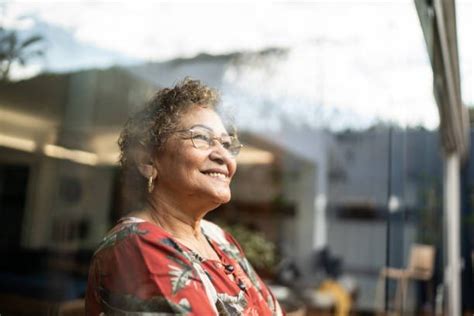World Mental Health Day serves as a vital reminder to prioritize mental well-being, especially for the elderly, who often face unique challenges. As our loved ones age, their mental health can be impacted by various factors, including social isolation and the effects of chronic illnesses. Raising awareness about these issues is crucial in fostering a supportive environment that promotes mental wellness among older adults. This article explores the significance of World Mental Health Day, the common mental health challenges faced by seniors, and the essential support and advice that caregivers, families, and communities can provide. Together, we can create a more understanding and nurturing atmosphere that enhances the mental well-being of our elderly population.
ujocis.net will take you through an extensive exploration of this topic.
1. Overview of World Mental Health Day
World Mental Health Day is observed annually on October 10, aiming to raise awareness about mental health issues worldwide and promote mental well-being. Established by the World Federation for Mental Health in 1992, this day serves as a platform to encourage discussions surrounding mental health, reduce stigma, and highlight the importance of accessible mental health care. Each year, a specific theme is chosen to address relevant mental health topics and challenges. For the elderly, mental health awareness is particularly significant, as older adults may experience various psychological struggles, including depression and anxiety, often exacerbated by factors like loneliness and physical health conditions. By emphasizing the importance of mental health on this day, we can encourage individuals, families, and communities to take proactive steps in supporting the mental well-being of older adults, ensuring they receive the care and attention they need to thrive in their golden years.

2. Importance of mental health awareness for the elderly
Mental health awareness is crucial for the elderly, as it directly impacts their overall quality of life. Aging can bring about significant changes, including loss of loved ones, declining health, and increased feelings of loneliness, all of which can contribute to mental health issues. By fostering awareness, we can help identify and address these challenges early on, preventing more severe mental health conditions from developing.
Furthermore, older adults often face societal stigma surrounding mental health, which can deter them from seeking help or discussing their feelings. Raising awareness can help combat these misconceptions and promote a more open dialogue about mental well-being, encouraging seniors to share their struggles without fear of judgment.
Additionally, mental health awareness empowers caregivers and families to recognize signs of distress and provide the necessary support. This understanding fosters a more empathetic and responsive caregiving approach, ensuring that elderly individuals feel seen and valued.
Creating supportive communities where mental health is openly discussed also encourages collaboration between healthcare providers, families, and support networks. Such initiatives can lead to improved access to mental health services and resources tailored specifically for older adults. Ultimately, prioritizing mental health awareness for the elderly not only enhances their well-being but also strengthens the social fabric that connects us all.

3. Common mental health challenges faced by older adults
Older adults often encounter a range of mental health challenges that can significantly affect their daily lives. One of the most prevalent issues is depression, which can arise from factors such as isolation, the loss of loved ones, or chronic health conditions. Symptoms may include persistent sadness, loss of interest in activities, and fatigue, making it difficult for seniors to engage in social interactions or maintain a positive outlook.
Anxiety is another common concern among the elderly, often exacerbated by fears related to aging, health, or financial stability. Conditions such as generalized anxiety disorder or panic disorder can lead to heightened stress levels, impacting their ability to cope with everyday situations.
Cognitive decline, including conditions like dementia and Alzheimer’s disease, poses significant challenges as well. These disorders can result in memory loss, confusion, and changes in personality, making it difficult for individuals to function independently.
Additionally, older adults may experience feelings of loneliness and social isolation, especially if mobility issues or health concerns limit their ability to engage with others. This isolation can further exacerbate existing mental health problems, creating a cycle of despair.
Recognizing these common challenges is vital in providing targeted support and interventions that promote mental well-being among older adults, ensuring they lead fulfilling and meaningful lives.

4. Impact of social isolation on elderly mental health
Social isolation significantly impacts the mental health of older adults, often leading to feelings of loneliness, depression, and anxiety. As seniors age, they may experience reduced social interactions due to factors such as retirement, the loss of friends or family, and mobility issues. This lack of connection can create a void in emotional support, making it difficult for them to cope with life’s challenges.
The consequences of social isolation are profound; studies have shown that isolated seniors are at a higher risk for developing mental health disorders. They may struggle with a decreased sense of purpose and increased feelings of worthlessness. Furthermore, isolation can lead to cognitive decline, as limited social engagement affects brain health and functioning.
To combat these issues, it is essential to encourage social connections through community programs, support groups, and family involvement. By fostering relationships and social interactions, we can help mitigate the negative effects of isolation and promote better mental health outcomes for older adults.
5. Effective communication strategies with elderly individuals
Effective communication with elderly individuals is essential for fostering strong relationships and supporting their mental health. One key strategy is to practice active listening, which involves giving full attention to the speaker, maintaining eye contact, and providing verbal or non-verbal cues that demonstrate understanding. This approach encourages seniors to express their thoughts and feelings freely.
Another important technique is to use clear and simple language, avoiding jargon or overly complex terms. This ensures that older adults fully comprehend the conversation and feel included in discussions. Speaking slowly and articulately can also help facilitate better understanding, particularly for those with hearing impairments.
Being patient and allowing ample time for responses is crucial, as cognitive processing may take longer for some seniors. Additionally, showing empathy and validating their feelings can create a supportive environment, making them feel valued and understood.
Non-verbal communication, such as facial expressions and body language, also plays a significant role. A warm smile or gentle touch can convey compassion and help alleviate anxiety. By employing these effective communication strategies, caregivers and family members can enhance interactions, fostering a sense of connection and improving the mental well-being of elderly individuals.
6. Role of caregivers in supporting elderly mental health
Caregivers play a vital role in supporting the mental health of elderly individuals, as they are often the primary source of emotional and practical support. By establishing strong, trusting relationships, caregivers can create a safe space for seniors to express their feelings and concerns. This emotional connection is crucial for recognizing signs of mental health issues, such as depression or anxiety, enabling timely intervention.
Additionally, caregivers can help combat social isolation by encouraging social interactions and facilitating connections with family, friends, and community resources. Engaging elderly individuals in social activities not only alleviates feelings of loneliness but also promotes a sense of belonging and purpose.
Educating themselves about the specific mental health challenges faced by older adults allows caregivers to respond effectively to their needs. This knowledge equips them to provide appropriate resources and encourage healthy coping strategies, such as physical activity, hobbies, or mindfulness practices.
Moreover, caregivers should prioritize self-care, as their well-being directly impacts the quality of care they provide. By maintaining their mental health, caregivers can better support the elderly, fostering a nurturing environment that enhances the overall mental well-being of older adults.
7. Community resources and support networks
Community resources and support networks play a crucial role in promoting the mental health of elderly individuals. Local organizations, such as senior centers and non-profits, often provide valuable programs and activities designed to foster social engagement, mental stimulation, and overall well-being. These programs may include support groups, recreational activities, and educational workshops that address various mental health topics.
Healthcare providers, including mental health professionals and geriatric specialists, are also essential resources. They can offer counseling services, therapy, and medication management tailored to the unique needs of older adults. Many communities have helplines and outreach programs that connect seniors with mental health services and support.
Additionally, technology-based solutions, such as virtual support groups and telehealth services, are increasingly available, making mental health resources more accessible. By leveraging these community resources and support networks, seniors and their caregivers can build a strong foundation for mental well-being, ensuring that older adults receive the assistance and companionship they need to thrive.
8. Benefits of physical activity and hobbies for mental well-being
Engaging in physical activity and hobbies offers numerous benefits for the mental well-being of elderly individuals. Regular exercise, such as walking, swimming, or yoga, has been shown to reduce symptoms of anxiety and depression, boost mood, and enhance cognitive function. Physical activity stimulates the release of endorphins, which are natural mood lifters, helping to alleviate feelings of sadness or loneliness.
Hobbies, whether gardening, painting, or playing musical instruments, provide seniors with a sense of purpose and achievement. These activities not only stimulate the mind but also encourage creativity and self-expression, contributing to improved mental health. Participating in enjoyable pursuits can foster social connections, reducing isolation by bringing individuals together around shared interests.
Moreover, both physical activity and hobbies promote a healthier lifestyle, which can enhance overall well-being. By integrating regular exercise and engaging in meaningful activities, older adults can significantly improve their mental health, leading to a more fulfilling and balanced life.
9. Accessing professional mental health services for the elderly
Accessing professional mental health services is crucial for the well-being of elderly individuals, as it ensures they receive the specialized care they may need. Many older adults face barriers to seeking help, including stigma, lack of awareness, and mobility challenges. To overcome these obstacles, it’s essential to promote understanding of the available mental health services and the importance of addressing mental health issues.
Geriatric mental health professionals, including psychiatrists, psychologists, and counselors, are trained to understand the unique challenges faced by older adults. They can provide tailored therapies, medication management, and support strategies that consider the individual’s physical health and life circumstances.
Community resources, such as senior centers and local health departments, often have information on mental health services specifically designed for seniors. Telehealth options are increasingly available, allowing elderly individuals to connect with mental health professionals from the comfort of their homes, making access easier for those with mobility or transportation issues.
Encouraging families and caregivers to advocate for mental health services can also enhance access. By fostering open conversations about mental health and emphasizing its importance, we can help older adults feel more comfortable seeking the professional support they need to maintain their mental well-being.
10. Tips for creating a mentally stimulating and supportive environment
Creating a mentally stimulating and supportive environment for elderly individuals is essential for promoting their mental well-being. One effective tip is to incorporate a variety of engaging activities that challenge the mind, such as puzzles, reading, and board games. These activities can enhance cognitive function and provide opportunities for social interaction.
Encouraging regular social engagement is also vital. Organizing regular family gatherings, game nights, or group outings can help combat isolation and foster a sense of belonging. Establishing a routine that includes physical activity, such as daily walks or yoga, can further enhance mental and emotional health.
Additionally, creating a serene and organized living space can reduce stress. Ensuring that the environment is clutter-free and filled with personal touches, like family photos or cherished mementos, can evoke positive memories and feelings of comfort.
Lastly, open communication is key. Encouraging elderly individuals to express their feelings and thoughts fosters a supportive atmosphere, allowing them to feel heard and understood. Together, these tips can help create a nurturing environment that enhances the mental well-being of older adults.
In conclusion, prioritizing mental health for elderly individuals is vital for their overall well-being. By raising awareness, addressing common challenges, and fostering supportive environments, we can empower seniors to lead fulfilling lives. Engaging caregivers, utilizing community resources, and promoting physical activity and hobbies play crucial roles in enhancing mental health. Together, we can create a society that values and nurtures the mental well-being of our aging population, ensuring they thrive in their later years.
ujocis.net

